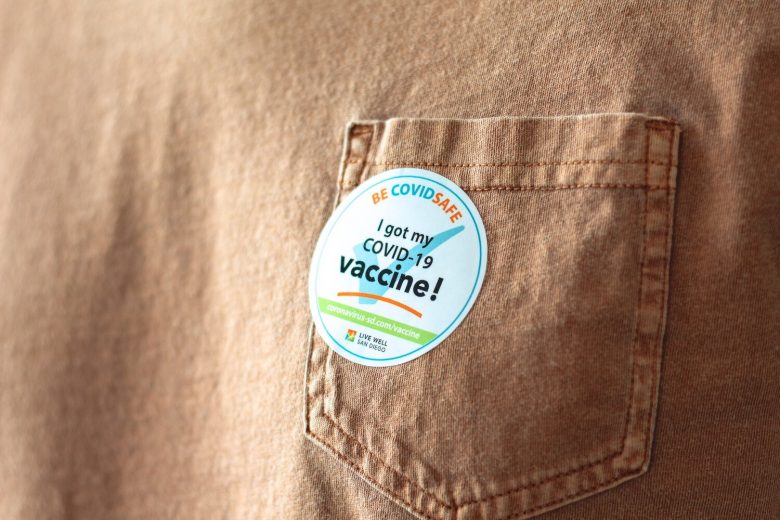How to Reduce Risk of Litigation: Mandatory Covid-19 Vaccine Religious Exemption
As we attempt to escape the dark days of the COVID-19 pandemic, thanks in no small part to the availability of a vaccine, new changes are still being made in offices across the United States and the world to make that exit a reality. In the US, several employers require staff members to take vaccinations to keep the office safe and free from health scares.
But one size does not fit all — several employees are requesting an exemption from compulsory vaccinations on various grounds, including religious reasons. But is this a conversation worth having? And what does US federal law say about the rights of individuals to exempt themselves from compulsory vaccinations on religious grounds? Let’s find out.
Understanding Title VII of the Civil Rights Act of 1964
Title VII of the Civil Rights Act of 1964 prohibits employers from discriminating against employees based on religious beliefs or practices. In the case of the mandatory COVID-19 vaccinations, this law requires small business owners to accommodate a staff member’s request to be exempted from compulsory vaccinations because of sincerely-held religious beliefs.
Of course, this does not mean employers must accept an employee’s plea not to take the vaccine without question. Based on specific clauses in Title VII, company executives can look into religious objections made by employees to determine whether their requests are legitimate and fall in line with the requirements of the law.
Quickly, let’s look at some clauses in Title VII that may help small business owners handle issues surrounding religious exemptions from COVID-19 vaccinations.
Determining Whether the Employee’s Request is Based on Sincerely Held Religious Beliefs
While US laws require company executives to accommodate a staff member’s sincerely held religious beliefs, it can be tricky to recognize this belief, faith, or practice.
For clarity, Title VII does not recognize philosophical, political, and social ideologies under religious beliefs. As such, employees cannot use those factors as a basis to exempt themselves from vaccinations. Title VII also does not cover personal preferences.
That said, when an employer is not clear on the religious beliefs of a staff member, the employer can request additional information – either through documentary evidence of the tenants and dogma of the faith or one-on-one explanations – to clarify the situation. However, before casting doubt on an employee’s beliefs, the employer must ensure her reservations are objective and not coming from a place of discrimination. To be on the safe side, though, we would recommend companies consult legal help for complete clarity and guidance before making any move to question a team member’s religious objections.
Refusing Appeals for Religious Vaccination Exemptions Because of Undue Hardship
Under Title VII of the Civil Rights Act, employers may deny a staff member’s plea for exemption if granting the request would cause undue business hardship. For better understanding, approving a request for religious accommodation may cause undue hardship if:
● It will significantly decrease business efficiency and productivity
● It will infringe the rights and privileges of other members of the workforce
● It puts staff and customers at risk of workplace hazards
● It may require other members of the team to execute more than their quota of hazardous tasks
● The accommodation is too costly
Accommodations to Consider in the Event of Religious Exemptions from Mandatory COVID-19 Vaccinations
If an employer decides to grant an employees’ requests to be exempted from COVID-19 vaccinations, the employer may need to make some changes around the office to accommodate these individuals. Some of the steps an employer can take for exempted employees may include:
● Mandatory wearing of face masks
● Social distancing within office premises
● Remote working
● Isolation to a specific workplace
● Alterations to employee’s work schedule to limit interactions with clients and other members of the workforce
Before putting these measures in place, the employer will need to review company policies on religious accommodation with company executives and managers; discuss with employees the proposed accommodations to be put in place around the office; and, appoint a supervisor to process and respond to all requests for religious accommodations.
Get Legal Help
Employment laws in the US can be tricky, and when it comes to religious exemptions from COVID-19 vaccinations, small business owners may require the aid of a legal professional to navigate the muddy waters and avoid any potential litigation.
Therefore, if you are in need of an attorney to help you with issues relating to religious exemptions from COVID-19 vaccinations, consider contacting The Law Office of Sheri Oluyemi, LLC. We have an experienced team of professionals who specialize in employment law cases for small businesses, and we can provide your company with the legal counsel to respond to religious accommodations for COVID-19 vaccinations.



Comments are closed.